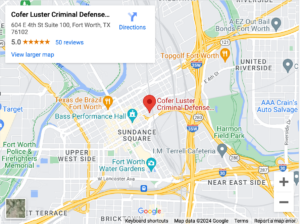
Facing criminal charges can be one of the most difficult experiences in a person’s life. The complexities of the legal system, coupled with the potential consequences of a conviction, can create immense stress and anxiety for defendants. Being well-informed helps you advocate for yourself more effectively during interactions within these systems.
Understanding Your Rights as a Criminal Defendant

Knowing your rights is crucial for anyone navigating the criminal justice system. Below are some of the most important rights you should be aware of as a defendant:
Right to Remain Silent
You have the right to remain silent during questioning by law enforcement. This means you cannot be compelled to provide information or answer questions that could incriminate you.
Right to an Attorney
You are entitled to legal representation. If you cannot afford an attorney, one will be provided for you at no cost. You should never answer any questions during an interrogation until you speak with a lawyer.
Right Against Illegal Search and Seizure
The Fourth Amendment protects against unreasonable searches and seizures without probable cause or a warrant. If evidence is obtained illegally, it can be excluded from court proceedings through a motion to suppress.
Right to Know Charges Against You
You have the right to be informed of any charges filed against you clearly within a reasonable timeframe after arrest. This helps with transparency and allows you to prepare your defense adequately.
Right to a Speedy Trial
You have the right to a speedy trial, which ensures that your case is heard within a reasonable time frame. This prevents prolonged detention and helps protect your ability to mount an effective defense. Delays can also be detrimental because evidence may fade or witnesses’ memories weaken.
Right to Confront Witnesses
Your Sixth Amendment rights grant you the ability to confront and cross-examine witnesses who testify against you in court. This ensures fairness in the trial process, allowing for scrutiny of opposing testimonies.
Protection Against Double Jeopardy
The Fifth Amendment protects against being tried twice for the same offense. This means you cannot be put on trial again after receiving a verdict for that particular crime.
Understanding these fundamental rights enables defendants to make informed decisions during legal proceedings.
Steps in the Criminal Justice Process
Defendants need to know what to expect throughout the criminal justice process, as being familiar with each stage can reduce anxiety and allow you to make informed decisions about your case. Below is an overview of the process:
Arrest
The process begins when law enforcement has probable cause or a warrant, leading them to arrest you. This could be for a range of crimes – drug crimes, sex offenses, homicide, or more. You will be taken into custody and read your rights.
Booking
After the arrest, you will be booked at a police station, where personal information such as your name and address is recorded. Your fingerprints will be taken, and you will be photographed.
Initial Court Appearance
During your initial court appearance soon after arrest (typically within 48 hours), you’ll be informed of the charges against you, given an opportunity to argue for bail, and advised on securing legal representation if you haven’t already done so.
Preliminary Hearing
In a preliminary hearing, the prosecution will present evidence to establish probable cause that a crime has been committed and that you are likely responsible for it. You will be present with your attorney, who can cross-examine witnesses. If probable cause is found, your case will move forward.
Arraignment
The arraignment is your formal court appearance, during which you enter a plea (guilty, not guilty, or no contest). If you plead not guilty, the process will continue to trial preparation.
Plea Bargaining
During this stage, your legal counsel and the prosecution may discuss potential plea deals. A favorable agreement can often lead to reduced charges or sentences in exchange for pleading guilty.
Trial
If there’s no satisfactory resolution through negotiation and you choose to go ahead with a trial, you and your lawyer would then select a jury (unless you have a bench trial without a jury). The prosecutor presents their case, and your defense attorney will argue as to why you should be found not guilty.
Sentencing
If you are found guilty or if you plead guilty, the court will hold a sentencing hearing where the judge determines an appropriate penalty based on various factors. Sentences can range from fines and probation to significant imprisonment, depending on the severity of the offense and your criminal history.
Appeal
Depending on your circumstances, there may be grounds for an appeal if legal errors occurred during your trial and affected its outcome. An appeal allows higher courts to evaluate whether procedural issues were correctly observed in your case. Ultimately, one of the most important steps you can take is to contact a criminal defense lawyer as soon as possible, which gives you the best chance of walking away with a clean record. Contact Cofer Luster Criminal Defense Lawyers at (682) 777-3336 today to schedule a free consultation.

